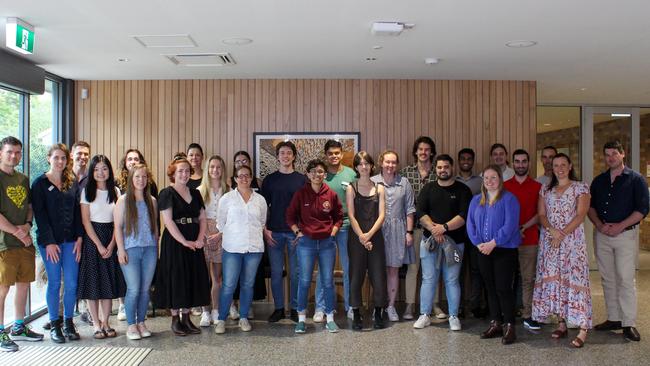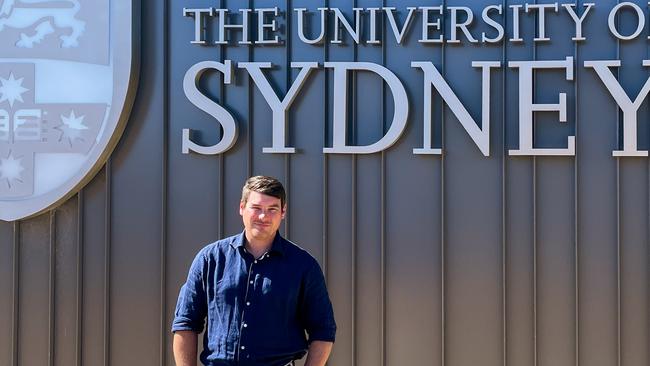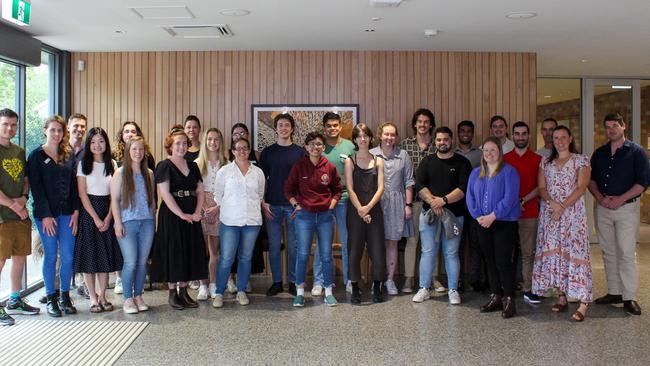University of Sydney’s School of Rural Health in Dubbo welcomes 25 new doctors-to-be
The University of Sydney is keeping talented minds in the bush and combating brain drain to urban areas, welcoming 25 new medical students to its Dubbo-based School of Rural Health.

Tertiary
Don't miss out on the headlines from Tertiary. Followed categories will be added to My News.
The best and brightest of the bush are set to be part of the solution to a shortage of doctors in the regions, with the University of Sydney welcoming 25 new students to its Dubbo-based Doctor of Medicine program.
It’s the second year the School of Rural Health in Dubbo has been running the degree, keeping talented minds in the bush and combating brain drain to urban areas while at the same time inviting city-slickers to get a taste of life in the regions.
The majority of the 2023 cohort are native to the bush, with the program also attracting Indigenous students.
Paramedic of seven years Corey Gibson is one of several mature-age students who are themselves from regional and remote communities and had been working in the health sector before setting their sights on a medical degree.
“It’s really important for me, with strong family ties in the area, and seeing the lack of resources we have out here, to be able to undertake take my training in the community that helped raise me,” he said.

“I think having these programs out west, and allowing people who may not have had the experience of being out west to train here, is really important.
“Often, the change of pace is something that people tend to love, and you end up falling in love with the community.”

Uprooting to the city was never an option, but seeing first-hand the effects of the GP shortages in towns from Armidale to Wellington, Mr Gibson was motivated to be part of the solution.
“I used to work at Lake Cargelligo, and often patients would have to travel over an hour and a half journey just to get an X-ray done, which would be unheard of in the city. We’re lacking specialists out here, and general practitioners.”
Professor Catherine Hawke, Head of the University’s Rural Clinical School said the students’ existing rural connections mean they’re much more likely to stay serving the bush, where there is a well-documented need for more doctors.
“Local health districts have been innovative, they’ve adopted virtual health care. But that doesn’t replace the ability to be able to see a clinician in person,” Professor Hawke said.
“We’ve got people with families who would not have had any chance of being able to go off and study medicine in a metropolitan area. But with (the Doctor of) medicine being delivered locally, they have that opportunity.”
The federal government recently passed legislation to have HELP student loan debt wiped for doctors and nurse practitioners who study and work in remote areas in response to the GP shortages.





